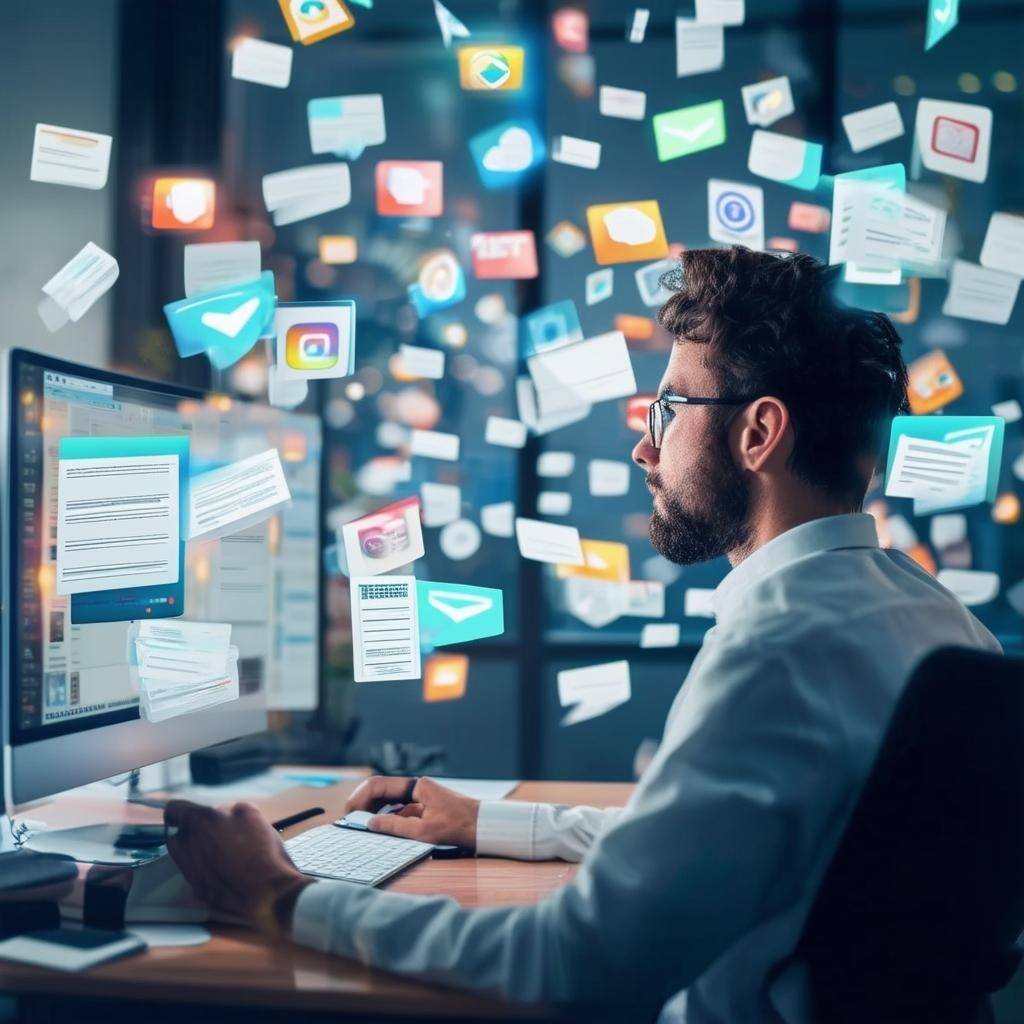How many times a day are you interrupted while working?
Hybrid working has become the new norm, combining remote work and office presence. This shift brings changes to the way teams are organised. Employees today juggle between multiple communication platforms (Teams, Outlook, Slack, WhatsApp, ...), which can lead to difficulties in concentration and mental overload after working hours. At the same time, new tools, including those based on artificial intelligence, are emerging daily to boost efficiency and task planning.
In this period of significant changes affecting the world of work, it is more important than ever to question your time management and work planning habits. It is never too late to improve your productivity, benefiting not only your team's results but also your personal balance.
Here are some best practices to facilitate collaboration, increase your productivity, and reduce mental load. While some personal habits may need to evolve, resolutions must also be made at the team level. Often, the key to achieving this balance between productivity and well-being lies in agreements made between colleagues and with management.
A high-performing and fulfilled team in a hybrid work environment is one that...
- Has clear agreements on the communication channels to use on a daily basis
- Define specific rules on which communication channels to use depending on the type of content (e.g., send an email for non-urgent requests, use Teams for urgent questions, and WhatsApp for personal news, ...). Don't hesitate to exclude platforms that are not useful for your team.
- Set clear expectations for response times and availability hours. To avoid constant interruptions and enable disconnection, establish appropriate response times. If an email can be answered within the day, disable Outlook notifications to work without being disturbed by them.
- Applies a principle of transparency regarding availability
- Share your calendars to visualise who is available and in the office. This is not about control, but about optimising contact times between colleagues, respecting moments of concentration, and prioritising in-person meetings.
- Agree on common practices for sharing your availability. Use your Outlook calendar or Teams to clearly indicate your available periods to limit interruptions.
A high-performing and fulfilled employee in a hybrid work environment is one who...
- Limits notifications as much as possible to boost your concentration
- Disable non-essential notifications. Minimise distractions by configuring your notifications to only keep those necessary for implementing your team agreements.
- Avoids multitasking
- Focus on one task at a time. This improves both efficiency and the quality of work. Multitasking may seem productive, but it actually reduces overall effectiveness.
- Centralises professional obligations
- Group all your tasks and professional obligations in one place. Use a single tool, platform, or notebook to visualise what is expected from you, avoid forgetting anything, and focus on your objectives.
- Keep this overview up to date. Invest time each week to eliminate what is no longer relevant and add what needs to be done. This allows you to clear your mind of intrusive reminders before closing your day or week.
- Is open to using new tools for boring tasks
- Experiment with new technologies. Use tools like ChatGPT or Copilot to automate certain repetitive and uninteresting tasks. This can make the task more exciting and speed up its completion. Remember, these tools are assistants and cannot do your work for you!
Are you ready to question and evolve your work habits?
For several years, Möbius has been training teams in time management methodologies and tools. Our personal work organisation training integrates renowned methodologies and adapts them to the new realities of hybrid work.
What do we offer?
- Interactive training: We provide a full day of intensive training, raising participants' awareness of different types of stimuli and their impacts on concentration. A few months after the initial training, a follow-up session is organised to evaluate progress and address challenges encountered.
- Practical tools: Introduction to tools and functionalities (Outlook, Teams, OneNote, ...) for effective management of emails, notes and tasks. Participants learn to use these tools to improve their productivity.
- Continuous support: For more personalised support, we offer individual coaching sessions. These sessions provide continuous support and help participants apply the methods learned, adjusting strategies according to professional and personal developments. Besides, group coaching sessions are offered on e.g. shared mailboxes.
This training is aimed at all employees wishing to improve their efficiency and well-being at work, whether they are managers, administrative staff, or operational employees. It is particularly beneficial in a hybrid work environment where time and task management are crucial to maintaining a healthy balance between work and personal life.
We tailor our training programmes to the needs of the organisation and participants, offering additional sessions and individual or team coaching as needed.
The large board with hundreds of Post-its in my head has been replaced by a neat cabinet with well-organised drawers.
For me and my team, this training has been one of the most useful we've taken in recent years.
We received a practical system that is immediately applicable.



